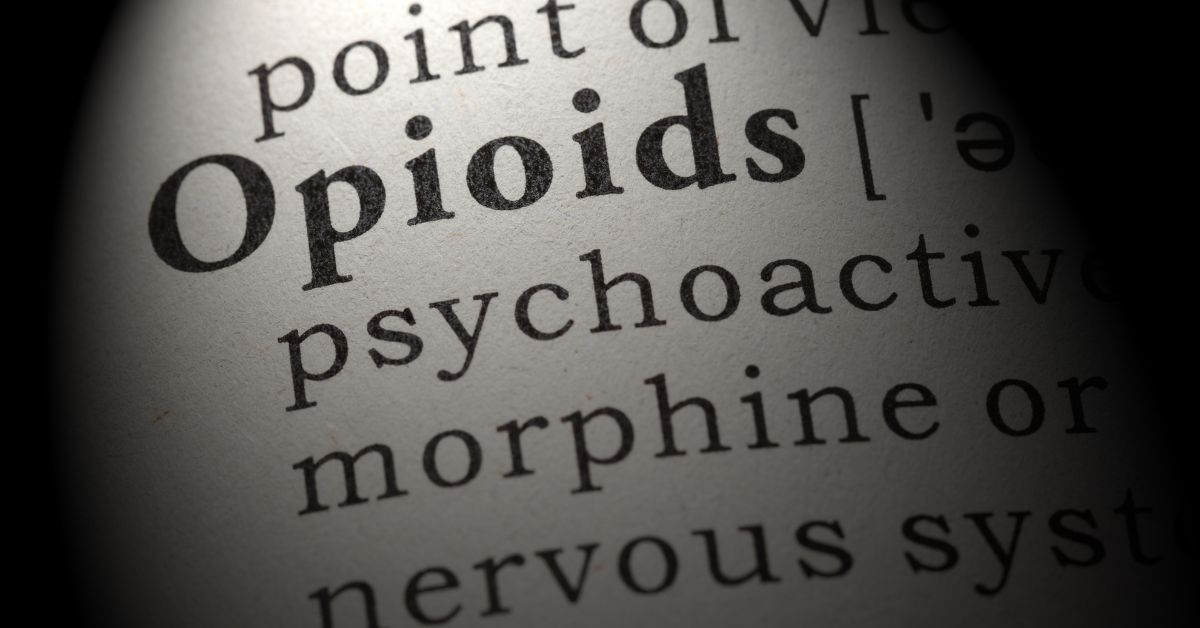Addiction is a complex and often misunderstood issue that affects millions of individuals and families worldwide. Its impact can be devastating on individuals and those around them.
Thus, it’s important to understand the causes and connections between addiction, mental health, and treatment. In this article, we will explore this in more detail, including its definition, types, and the impact it has on individuals and families, as well as the importance of seeking treatment.
What is Addiction?

Addiction is a complex brain disease that is characterized by compulsive substance use despite harmful consequences. It is a chronic disease that affects the brain’s reward, motivation, and memory systems. Individuals who struggle with this experience physical and psychological dependence on the substance or behavior, making it difficult to quit despite the harmful consequences.
FREE: Get the 3 pieces of advice that helped me understand this disease of addiction
Types of Addiction
This can take many forms, including:
- Drug addiction is the most commonly recognized form and can include prescription drugs, illegal drugs, and over-the-counter medications.
- Alcohol addiction is another common form and can lead to physical and psychological dependence.
- Behavioral addiction, also known as process addiction, is a type that involves compulsive behaviors such as gambling, gaming, or shopping.
The Impact of Addiction
The impact of addiction extends far beyond the individual struggling with the disease. It can have a profound impact on families, friends, and close ones. It can lead to financial strain, relationship problems, and legal issues. It can also have a significant impact on an individual’s mental health, leading to anxiety, depression, and other health disorders.
The Importance of Seeking Treatment
Seeking treatment is a critical step in the recovery process. It is important to seek treatment from a qualified healthcare professional who can provide individualized care and support. Treatment may include medication-assisted therapy, behavioral therapy, and support groups. It is important to remember that recovery is a process and may not be easy, but it is possible.
Causes of Drug Addiction

Although there is no single point of reference, the root causes of substance abuse are often the result of a combination of genetic, environmental, and mental health factors. Let’s explore what causes drug addiction and how it can impact an individual’s life.
Is Drug Addiction Genetic?
One of the leading causes is genetics. Genetic predisposition to addictive substances can make some individuals more vulnerable than others. Similarly, the influence of family history also plays a role in an individual’s likelihood of developing addiction. Studies have shown that children of addicts are up to eight times more likely to develop this than those without a family history of addiction.
Environmental Factors
Environmental factors such as exposure to drugs or alcohol, family and fellow influences, and socioeconomic status and living conditions can also contribute to drug addiction. For example, individuals who grow up in households where drug and alcohol use is prevalent are more likely to become addicts. Peer pressure and the influence of friends can also be significant factors in an individual’s decision to use drugs.
Mental Health Disorders
This includes depression, anxiety, post-traumatic stress disorder (PTSD), and bipolar disorder can contribute to drug addiction. Dual diagnosis, where an individual has both a mental health disorder and addiction, is also common. In some cases, individuals may turn to drugs to self-medicate from these symptoms. Studies show that up to half of all individuals with mental illnesses also struggle with addiction.
Teen Drug Use
Adolescents are more vulnerable, and teen drug use is a significant concern. The allure of substances, especially when considering the most frequently abused drugs by teens, can be intensified by the impact of social influence and the desire to fit in. Risk factors include a history of family violence or neglect, low self-esteem, and poor academic performance.
Drug Use and Its Consequences: What You Need to Know

Do you know someone who is struggling with addiction? Are you concerned about their drug use and the impact it’s having on their life? Let’s dive into some information about this and its consequences.
UPDATED: Discover the 3 life-changing things about addiction I wish I knew years ago
Substance Types
Many different types of drugs can be abused, including opioids, stimulants, depressants, and hallucinogens. Some of the most commonly abused drugs include heroin, cocaine, methamphetamine, and marijuana.
Commonly Abused Drugs and Their Effects
| Drug | Short-term Effects | Long-term Effects | Risk of Addiction |
|---|---|---|---|
| Alcohol | Reduced inhibitions, impaired coordination, slurred speech | Liver damage, brain damage | High |
| Marijuana | Euphoria, altered sense of time, increased appetite | Memory problems, lung issues | Moderate |
| Cocaine | Euphoria, increased energy, alertness | Heart problems, seizures | High |
| Heroin | Euphoria, pain relief, drowsiness | Infections, organ damage | High |
| Prescription Opioids | Pain relief, drowsiness, euphoria | Tolerance, dependence | High |
Difference Between Drug Use and Drug Addiction
It’s important to note that there is a major difference between the two. While the use of drugs may be occasional or recreational, addiction is characterized by compulsive drug seeking and use, despite negative consequences. If you’re concerned that someone close to you may be struggling, it’s important to seek help as soon as possible.
Behavioral Changes
Drug use can have a significant impact on a person’s behavior and decision-making abilities. When under the influence of drugs, individuals may engage in risky behaviors, such as reckless driving or having unprotected sex.
This can also strain relationships with friends and family members, as individuals may prioritize their drug use over their obligations and responsibilities. Heavy usage can have a negative impact on a person’s daily life, affecting their work, school, and personal life.
Alcohol Abuse: Definition and Consequences

Alcohol abuse is another form of substance abuse that can have serious consequences. The abuse can lead to addiction, just like other drugs. Excessive drinking can lead to negative consequences, such as legal problems, relationship issues, and health problems.
In the short term, this can lead to impaired judgment, slurred speech, and coordination problems. In the long term, it can lead to liver disease, cancer, and other health problems.
Relationship Between Alcohol Abuse and Addiction
GET: The 3 things that actually "allowed" me to help my son (and regain control again)
Like anyone addicted to the use of drugs, a person anyone suffering from alcoholism may experience withdrawal symptoms when they try to quit drinking. These symptoms can include tremors, anxiety, and even seizures. Alcohol addiction can have a significant impact on a person’s mental health, but with the right support and guidance, recovery is possible. Encourage addicts close to you to seek help from a qualified professional and be there to offer familial support on their journey to recovery.
Addiction Treatment Programs

If someone you care about is struggling, it’s important to understand that recovery is possible with the right treatment approach.
Let’s discuss the importance of tailored treatment plans, factors to consider when choosing a treatment plan, and the different treatment programs available, including detoxification, rehabilitation, therapy, medication-assisted treatment, and support groups.
We’ll also explore the role of mental health treatment in recovery.
Importance of Tailored Treatment Plans
No two people are the same. That’s why it’s important to have a tailored treatment plan that meets the individual’s specific needs. Treatment plans should take into account factors such as the individual’s substance of choice, the severity of their addiction, their medical history, and their mental health.
Factors to Consider When Choosing a Treatment Plan
When choosing a treatment plan, it’s essential to consider several factors to ensure the best possible outcome. Here are some things to keep in mind:
- The individual’s substance of choice and how long they have been using it
- The severity of their addiction
- Any co-occurring mental health disorders
- The individual’s medical history
- Their personal preferences and goals for treatment
- The availability of treatment options in their area
Treatment Options
There are several treatment options available for individuals struggling with addiction. Let’s take a closer look at each of these options:
| Treatment Option | Description | Benefits |
|---|---|---|
| Detoxification | Medical supervision to manage withdrawal symptoms | Safer and more comfortable process |
| Rehabilitation | Inpatient or outpatient programs to help individuals recover | A structured environment, support, and therapy |
| Therapy | Cognitive-behavioral therapy, family therapy, etc. | Addresses underlying issues builds coping skills |
| Medication-assisted treatment | Use of medications like methadone, buprenorphine, and naltrexone | Reduces cravings, manages withdrawal symptoms |
| Support groups | Groups like Alcoholics Anonymous, Narcotics Anonymous | Peer support, encouragement, and accountability |
Role of Mental Health Treatment
It’s necessary to address any co-occurring health disorders during treatment. Mental health treatment can include therapy, medication management, and support groups. An integrated treatment approach that addresses both addiction and mental health can lead to better outcomes and a higher likelihood of long-term recovery.
Triumphing Over Addiction Through Support and Right Treatment

The complex and diverse nature of drug addiction requires personalized care and ongoing support for someone you care for to achieve lasting recovery. Recognizing the various factors, such as genetics, environment, and personal circumstances, is crucial for understanding and addressing the issue.
By helping them explore the correct treatment options, such as inpatient or outpatient programs, counseling, therapy, medication-assisted treatment, and support groups, you can guide them on a path to recovery tailored to their unique needs and overcoming addiction.
It’s essential for parents and loved ones to provide understanding and support, as this collaborative effort helps reduce stigma, promote healing, and prevent relapse. Ultimately, overcoming drug abuse becomes possible when we unite in our efforts to learn, empathize, and support one another.
FREE: Get the 3 pieces of advice that helped me understand this disease of addiction
Frequently Asked Questions About What Causes Drug Abuse and Addiction
What are the major causes of drug abuse among students?
Peer pressure and stress are major factors that lead to drug abuse among students. Other factors, such as curiosity, a desire for increased social status, and a coping mechanism for academic or personal challenges, may contribute to the abuse in this demographic.
What are the effects of drug abuse among the youth?
Drug abuse among the youth can lead to negative physical, mental, and social consequences. These may include poor academic performance, health disorders, physical health issues, increased risk of accidents, and strained relationships with family and friends.
What are the 3 main risk factors of drug use?
The 3 main risk factors are genetic predisposition, environmental factors, and individual development. Genetic predisposition involves inherited traits that make a person more susceptible to drug use. Environmental factors include influences from family, friends, and socio-economic status, while individual development encompasses personal experiences, mental health, and coping mechanisms.
What are the three areas of addiction?
The three areas are physical, psychological, and social. Physical addiction refers to the body’s dependence on a substance due to tolerance and withdrawal symptoms. Psychological addiction involves cravings and compulsive behaviors driven by emotional or mental needs. Social addiction pertains to the impact of substance use disorder on relationships, work, and other aspects of a person’s life.
